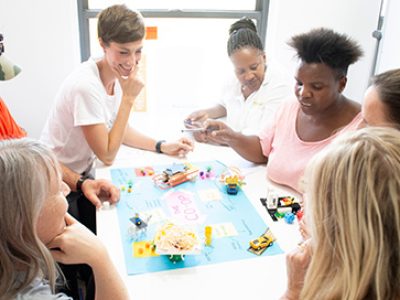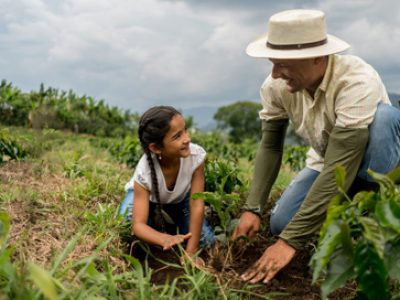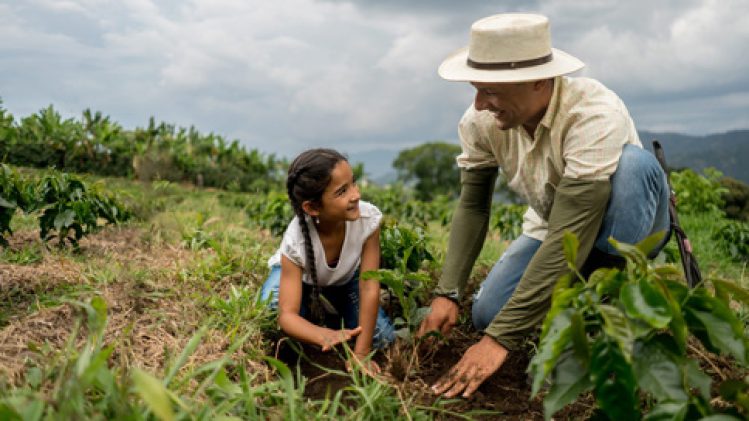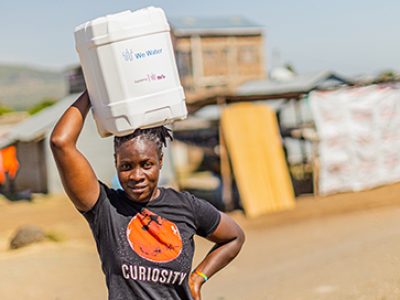The power of networking for economic and sustainable development
Insights into the ACCES Music Conference 2023
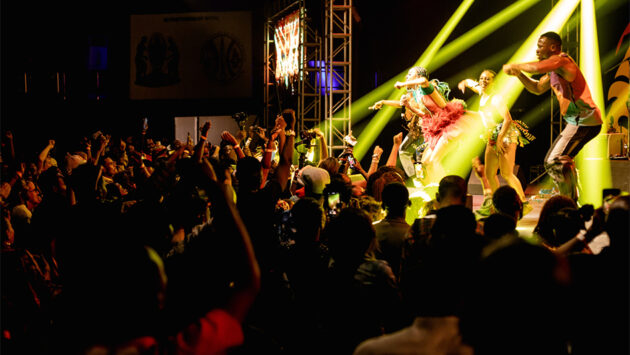
As an opportunity to discuss current trends, discover new talent and make new business connections, the ACCES Conference attracted over 1,200 participants from 40 countries to Tanzania from November 9 to 11, 2023. Held for the sixth time, ACCES is one of the largest networking events for the African music industry and is organized by our partner organization, Music In Africa.
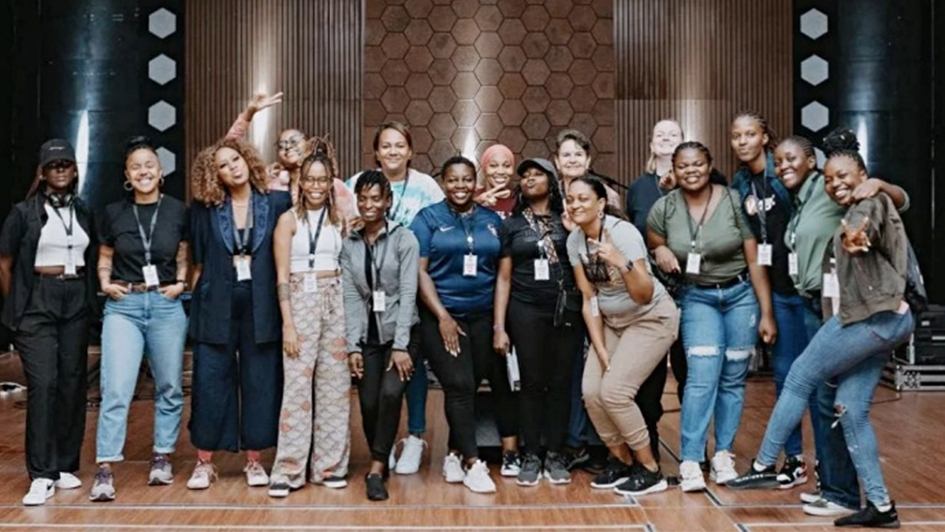
The best part about the Music In Africa Foundation and its work? For Ndomupeishe Chipendo, the answer is obvious: “The opportunity to network.” The 28-year-old dancer, choreographer, instrumentalist and radio host from Zimbabwe is known to her friends and fans as Ndomzy. “Where else can you network so much in such a short time?”
Ndomzy is a participant in the Gender@work program, another Music In Africa initiative, which promotes women in music management roles. In November 2023, she and 14 other scholarship holders on the program to traveled to Dar es Salaam to attend ACCES, the largest meet-up for the African music industry. “My group includes loud, powerful ladies from across the continent,” says a thrilled Ndomzy. “We might not all speak the same language, or have the same cultural background, but our music and creativity brings us all together.”
This encapsulates the Music In Africa Foundation’s vision perfectly: bringing together different players in the African music industry – artists, managers, producers and promoters, along with international players – and providing an opportunity to network, thereby enabling the industry to further professionalize and develop.
A diverse cultural network
«Music In Africa has blossomed into Africa’s largest cultural network.»
Over the last decade, Music In Africa itself has also grown significantly. Officially founded in 2013 as the first online platform for contemporary African music, it was initially “more of an experimental set-up”, as Jens Cording recalls. He was one of the minds behind the foundation’s establishment and Cultural Projects Manager at Siemens Stiftung. “Now, though, the project has blossomed into Africa’s largest cultural network,” says Cording, who also sits on the Executive Committee of the German Music Council (DMR) and the Advisory Committee of the German Federal Cultural Foundation (KdB). Nevertheless, one thing has remained unchanged for the foundation: its commitment to promoting the networking and development of music creators.
From the outset, Music In Africa was more than just an information portal: it was exceptionally interactive. Artists can create a profile for themselves and foster contacts with colleagues, events organizers and promoters. This leads to collaborations and gives rise to new contracts. The project also includes professional orientation workshops, including on cultural management but also on wholly practical topics, such as seminars on how to build and repair instruments.
Digital and analog components intertwined
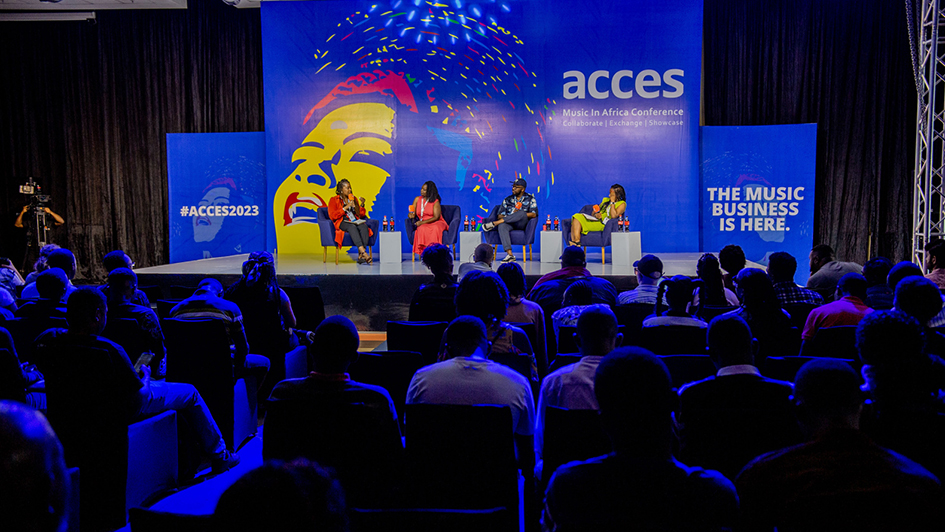
A fifteen-strong team at the foundation’s regional offices in capital cities – Johannesburg, Kinshasa, Dakar, Lagos and Nairobi – ensures that the foundation, which is officially registered in South Africa, maintains a presence across the continent. At Siemens Stiftung, we have supported the foundation since its inception, with the Goethe-Institut as an additional German cooperation partner. We provide financial assistance and contribute our expertise when needed, such as in the search for new partners, on legal matters and much more. However, it is a stated goal for the platform to become self-sufficient and continue without support in future. Music In Africa is well on the way to achieving this: it records 260,000 unique users per month, already has 34,000 music professionals and institutions registered to the platform and offers 250,000 tracks for streaming. “Confidence has also grown significantly,” says music expert Cording. Representatives of Music In Africa have now approached “major players”, such as governments and the African Union, with clear demands in relation to cultural policy.
Of course, those at Music In Africa also know that digital networking can only ever be one element of efforts to foster new contacts. Establishing these relationships for the long term requires an intertwining of digital and analog components. This is precisely why the community comes together once per year at the Music In Africa Conference for Collaborations, Exchange and Showcases (ACCES), which always addresses the latest trends and challenges.
Conquering the global market
«Music is the largest employer of young people aged 18 to 35 in Africa.»
So, how can we tap into the vast potential the African music now holds – and promote and monetize it? This question was at the very top of the agenda at the summit in the Tanzanian capital of Dar es Salaam in November 2023. The answer soon became clear: networking, exchange and collaboration are crucial factors in efforts to conquer the global market and properly reap the rewards – not least through licensing fees and royalties, which have often passed Africa by to date.
The lack of cultural and music education in Africa was another focus topic. Culture and music are not only vital aspects of social co-existence in Africa, they have long since become major economic factors. Eddington Hatitye, Director of Music In Africa, points to UNESCO studies shows that “music is the largest employer of young people aged 18 to 35 in Africa”.
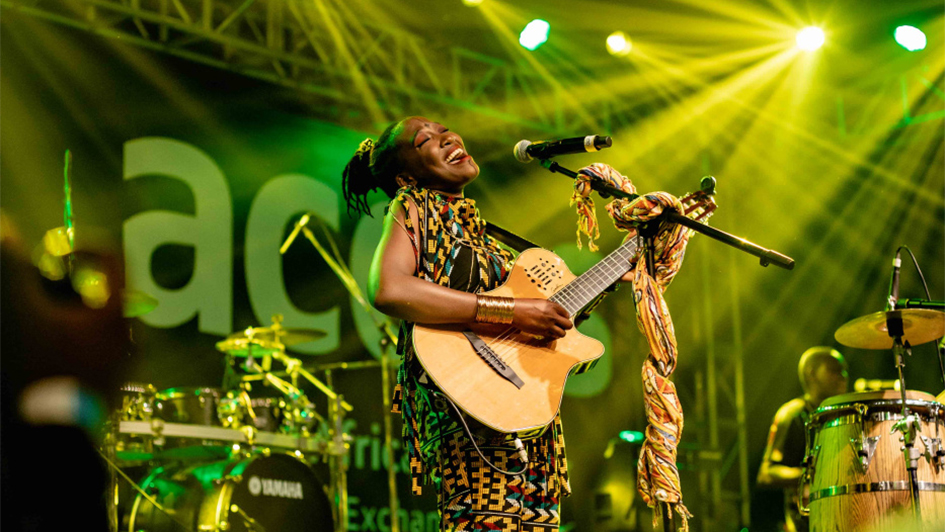
Music for sustainable development
«There is a long-standing link between music and politics in Africa. However, the economic side of music has not been properly appreciated.»
Given its economic power and the ability to connect and motivate people across cultural and national boundaries, music can also add impetus to efforts to achieve the UN Agenda 2030 and the 17 Sustainable Development Goals (SDGs) adopted by the United Nations in 2015. Speaking two years ago at an SDG conference in Bonn, Caroline Petit, the Deputy Director of the United Nations Regional Information Centre (UNRIC) for Western Europe, said: “The music industry is a strong network which connects people across generations and can make a difference to the advancement of the global goals.”
To date, however, many development organizations, donors and funding providers have shown little appreciation of this. Samuel Sangwa, Regional Director for Africa at CISAC, an international confederation of societies of authors, composers and collecting agencies, including the German agency GEMA, is well aware of this problem. “There is a long-standing link between music and politics in Africa. The Congolese rumba is a symbol of the independence movement; Cesaria Evora sang about migration and the homesickness felt by her compatriots from Cape Verde, and Fela Kuti from Nigeria used music to spread political and social messages. Yet, the economic side of music, its significance in creating jobs, generating tax income and so on has not been properly acknowledged to date.”
Music In Africa aims to change that. Or, as its Director, Eddington Hatitye, says: “The African bonmot stating that the only official culture we recognize is agriculture should be consigned to the past, once and for all.”
Gesicherte
Grundversorgung
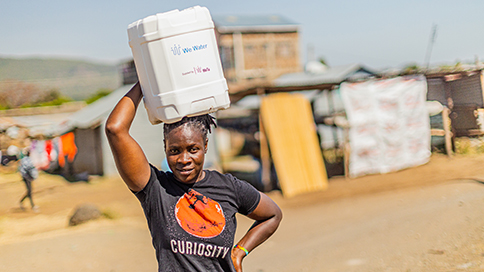
Gemeinsam
für nachhaltige gesellschaftliche Entwicklung
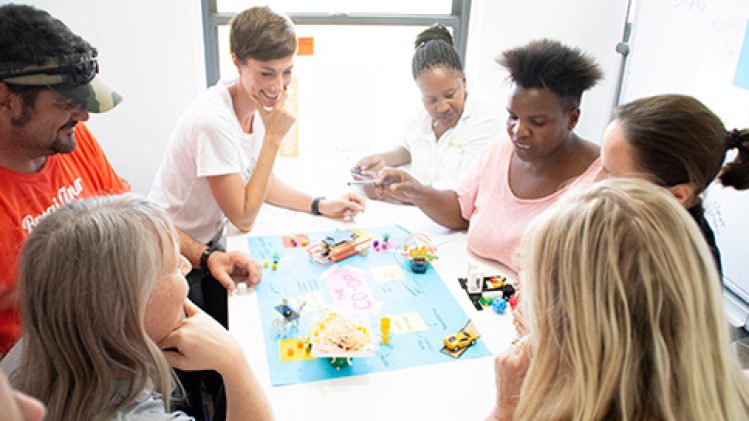
Vernetzte
Gesellschaften
